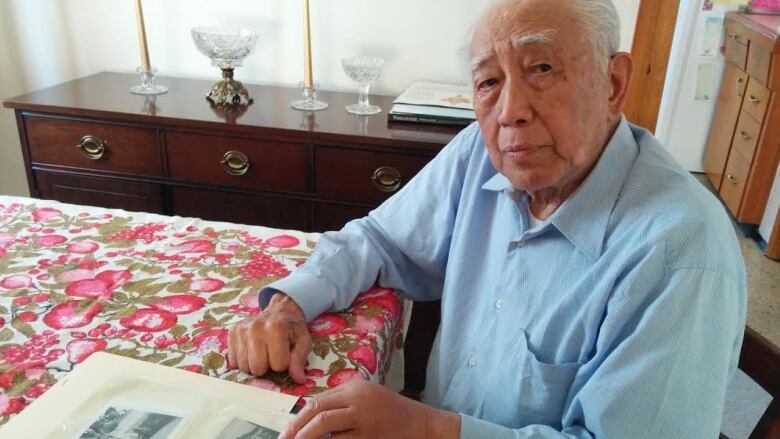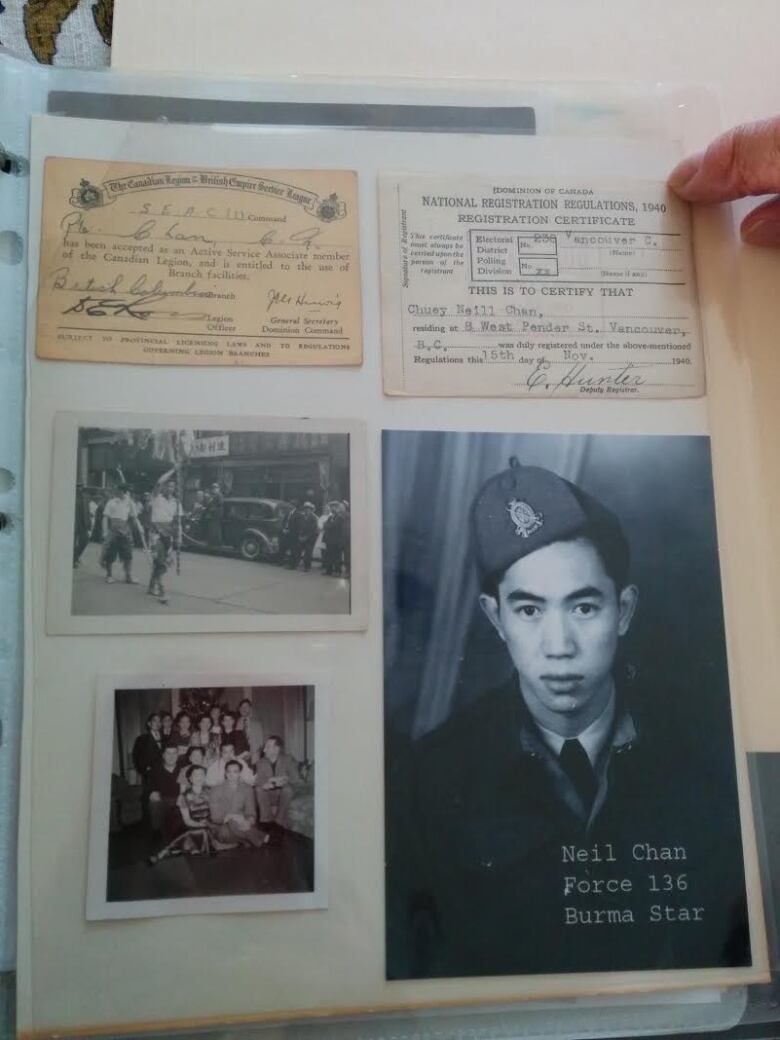Chinese Canadian WW II veteran recalls fighting for Canada
Neill Chan was 18 and couldn't vote when he was recruited to join the army and fight against Japan

Today marks 70 years since the conclusion of theSecond World War when Japan surrendered to the Allies.
In Vancouver, one way theanniversary wasbeing remembered wasatthe Chinese Cultural Centre, where officials honoured members of Force 136, Chinese-Canadian operatives who worked behind enemy lines to stop the march of Japanese soldiers.
"In 1944, everyone in Canada, immigrant or national, had to join the army," recalled Neill Chan, a member of Force 136 who grew up in Vancouver's Chinatown.
"At that time the British Army sent two generals to recruit Chinese for a different kind of training."
- Japanese PM Shinzo Abe stops short of apology for World War II
- World War II bomber engine from crash that killed 11 to be recovered near Chilliwack
- Chinese Canadian soldiers honoured for WW II efforts at new museum exhibit
Chan and other members of Force 136 were chosen because the British generals believed they could pass for Japanese, and trained them as scouts to work behind enemy lines.
And while the reason they were recruited was based on racist assumptions, it was par for the course for most of the men of Force 136: they had no citizenship, and faced racism in every facet of life in Canada.
Dangerous wartime duties

Chan served in South-East Asia, doing the dangerous work of a scout while also serving as an interpreter. He would go out in advance of a main force, assess the enemy's situation, and report back to command.
His service ended shortly after the atomic bombs were dropped on Hiroshima and Nagasaki, and he was glad to be done with the war when that happened.
"I thought, 'thank goodness, we don't have to go into war [against the Japanese islands],'" he says about the relief he felt when he heard about the atomic bombings.
Once his service was finished, Chan returned to Vancouver, got married and, like thousands of other Canadians, made the transition back to civilian life.
No regrets for Chan
Chan has no regrets about serving with the British Army today, and he says he had no regrets 70 years ago, either.
But for many Chinese Canadians, serving with the British Empire was controversial; Chinese people worked hard in the countries they immigrated to, but were often denied basic rights including the right to vote and were targets of discrimination from other Canadians.
"When we joined the army, many societies in Chinatown were against it. They said, we should fight for China, not pour our hearts into other national armies," Chan says.
"I had none of those feelings at all. I was brought up in a multicultural society mixed with all nationalities. So I thought I was Canadian."
On Saturday, August 15, Chan and other members of Force 136 werehonoured at the Chinese Cultural Centre on Pender Street in Vancouver during a remembrance ceremony for the end of World War II. The event beganat 10:45 a.m. PT
To hear the full story, click the audio labelled:70 years after WWII, Chinese Canadian vet recalls service












_(720p).jpg)


 OFFICIAL HD MUSIC VIDEO.jpg)
.jpg)



























































































